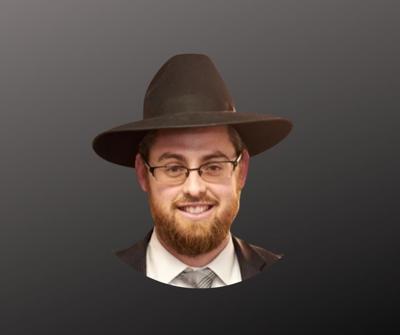What’s the best way to say something meaningful that is important and needs to be communicated?
What do you think is the most important idea that may be hard for Jewish people to hear but needs to be said?
This week’s Torah portion actually looks different than any other Torah portion, as the majority of it was written in a split poem. Why did Moshe write the Torah this way? What message does Moshe want to communicate?
After we read this poem in the seventh Aliyah, the verse says Moshe and Yeshosua brought thisשיר Song and shared it in the ears of the nation. Why is it called a song?
What may seem very perplexing is we find in history that King David also called the Torah a song, as it says, “Your laws have been my songs wherever I may dwell.” (119, 54) However, the Talmud (Sotah 35a) tells us that Kind David was punished for calling the Torah a זמר Song. So is the Torah called a song or not?
I once heard a great incite: There is a difference between the Hebrew words “shir” and “zemer.”In English you would call a shir a poem and zemer a tone or melody. Moshe called the Torah a shir, meaning a poem. In a poem there is a message that is communicated in a poetic way. However, King David called the Torah a tune, which is melody that can be sung to different words. Although King David was expressing his love for the Torah, in every situation he was degrading the Torah as only a melody. However, Moshe was saying that the Torah was a song and a poem, which can be very deep and powerful.
Why do people write a poem if they can write in a regular way? I think I have the answer, based on what I see from my mother’s writing. She is an author and poet -- look up Bracha Goetz for great, meaningful books for the kids you love. (I promise I am not biased.) It’s because when one writes a poem it comes off nicer and sweeter. It is not as direct, and yet, it can have very deep and penetrating ideas that can be life changing. So, while it’s powerful, it could come across in a softer way.
Calling the Torah a poem is a complement the meaningful depth that it contains.
So why did Moshe write this week’s parshah in song/poem? It contains a very powerful message.
The poem, in short, talks about the history of the Jewish people and when they did not believe and follow in the ways of Hashem, even though God took care of us. Hashem is bound to the Jewish people and will take care of the Jewish people. What binds us to Hashem? In the second verse (32,2), Rashi explains that the poem is referring to the Torah way and that it is eternal.
That is it, my friends. That is what binds us and keeps us connected as a Jewish people -- it’s the Torah.
It may be hard to swallow as a fact, and that is why we need a poem to say it nicely.
In fact, in the previous parshah, in referencing the song (See Ramban 31 verse 19,21), it says this song will testify for the Jewish people. Then it says the song should not be forgotten from the Jewish people in order that it should not be forgotten for future generations.
We have learned from this week’s parshah that the most important song/poem is very deep and may be the best way to communicate a powerful, deep message. Before Moshe leaves the Jewish people, he reminds us to keep and learn the Torah, which is the will of God.
May we be blessed with a year of strong focus on what is truly important and stay committed to the Torah, our glue to God. JN
Rabbi Gavriel Goetz is the head of school at Yeshiva High School of Arizona.







